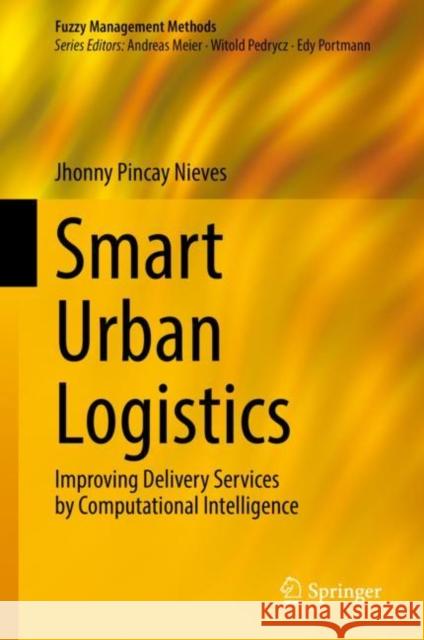Smart Urban Logistics: Improving Delivery Services by Computational Intelligence » książka
Smart Urban Logistics: Improving Delivery Services by Computational Intelligence
ISBN-13: 9783031167034 / Angielski / Twarda / 2022 / 170 str.
Smart Urban Logistics: Improving Delivery Services by Computational Intelligence
ISBN-13: 9783031167034 / Angielski / Twarda / 2022 / 170 str.
(netto: 575,06 VAT: 5%)
Najniższa cena z 30 dni: 578,30
ok. 16-18 dni roboczych.
Darmowa dostawa!
Last-mile delivery in cities, where the main problems are the traffic situation and ensuring access to customers’ homes while maintaining their privacy, poses a substantial logistical challenge. This book explores how the service area of mobility, especially last-mile delivery, can be improved and smartified. It demonstrates how a design science method and a transdisciplinary approach have been used to create a traffic area analysis tool that can accommodate the uncertainty and incompleteness of geospatial data; a linguistic traffic merging tool; and a customer classifier. In terms of developing the optimization artifacts, the socio-economic and logistical aspects of cities were considered and fuzzy logic and nature-inspired swarm intelligence (fuzzy ant colony optimization) were applied as basic principles.Pursuing a transdisciplinary approach, the book offers both practical know-how from the industry and theoretical findings, making it a valuable asset for researchers and practitioners in the fields of mobility and logistics.
Last-mile delivery in cities, where the main problems are the traffic situation and ensuring access to customers’ homes while maintaining their privacy, poses a substantial logistical challenge. This book explores how the service area of mobility, especially last-mile delivery, can be improved and smartified. It demonstrates how a design science method and a transdisciplinary approach have been used to create a traffic area analysis tool that can accommodate the uncertainty and incompleteness of geospatial data; a linguistic traffic merging tool; and a customer classifier. In terms of developing the optimization artifacts, the socio-economic and logistical aspects of cities were considered and fuzzy logic and nature-inspired swarm intelligence (fuzzy ant colony optimization) were applied as basic principles.











